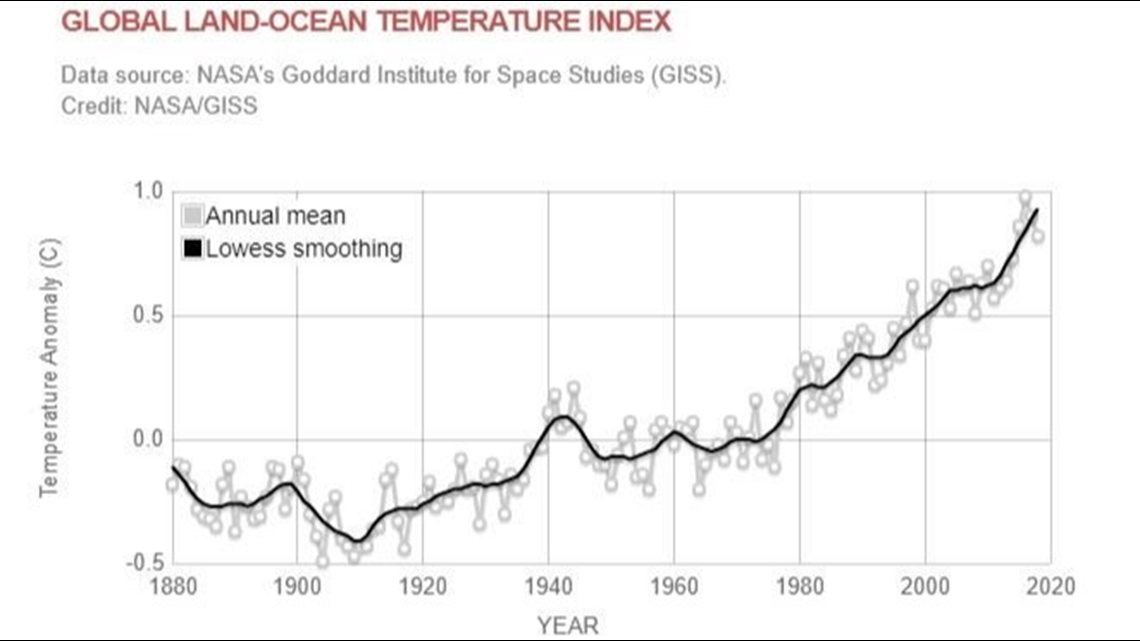The current record for the hottest month in Earth's history is from July 2017.
With only a week left until the end of the month, dozens of experts tell NBC News that they are predicting we are going to beat that 2017 record.
The National Oceanic and Atmospheric Administration says that the average global temperatures are up 2.16 degrees Fahrenheit since the 20th century when the average was 57.8 degrees Fahrenheit.
“Of course, we won’t know until all the tallies are in, but we’re on a good pace right now to beat that record,” said Jack Williams, director of the Center for Climatic Research at the University of Wisconsin-Madison.
Last month another climate record was beat as the hottest June was recorded. Average global temperatures were 1.71 degrees Fahrenheit higher than the 20th century record, according to NASA and NOAA, which track global surface temperatures.


This graph provided by NASA/GISS illustrates "the change in global surface temperature relative to 1951-1980 average temperatures. Eighteen of the 19 warmest years all have occurred since 2001, with the exception of 1998. The year 2016 ranks as the warmest on record."
Climate Scientist Michael Mann from Pennsylvania State University chimed in on the conversation on Twitter, saying, “July is the warmest month of the year globally. If this July turns out to be the warmest July (it has a good shot at it), it will be the warmest month we have measured on Earth!”
In an email Tuesday to NBC News, Mann called the new record “likely,” saying there’s now a “greater than 50/50” chance that the month will set a new high temperature.
The conversation about climate change has increased as the climate and other impacts are being studied by many around the world.
According to NBC News, about 169 million people across the United States were under heat alerts as temperatures climbed into the triple digits.
Watch 11Alive's special report, PLAN G, about how Georgians are leading the climate conversation. For more, follow reporter Matt Pearl on Facebook, Twitter, and Instagram.
Europe has also recorded some of the highest temperatures this month as France had a heat wave go through last weekend breaking their all-time high records.
The recent warming trends demonstrate the profound impact of climate change, according to Mann.
“It’s part of a worrisome pattern of streaks of broken records which, we have shown simply would not be occurring in the absence of climate change,” Mann said. “This is just one additional confirmation, along with the spate of unprecedented extreme weather events we’ve seen in recent years, of the fact that the impacts of climate change are no longer subtle. They are staring us in the face.”
According to NBC News, "scientists say global temperatures could increase by at least 3.6 degrees Fahrenheit this century - creating conditions on Earth that have not been seen in more than two million years."
“The closest equivalents were found in the Pliocene [Epoch], when sea levels were higher by tens of feet and it was a much warmer world,” Williams said. “That was a time period prior to human evolution. Part of the bigger picture here is we’re pushing the climate system toward states that we haven’t seen in our societal experience — and even in our species’ experience.”

